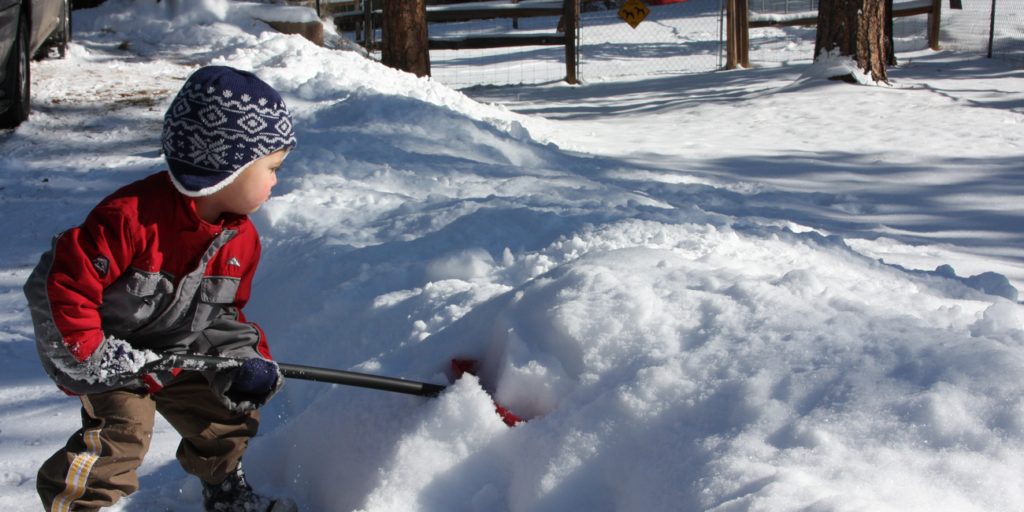You know this time of the year, for most of the nation, snow is a given and for most of us, it’s already upon us. Believe it or not, some places may see more than 100 inches per winter season!
So whether you get just a few inches of the white fluffy stuff this year or 100-plus, it’s often a challenge to manage the snow once it’s finished falling. Here are a few suggestions from the professionals:
Shovel smarts
Shovel on an empty stomach.
Try not to shovel right after eating a meal or while smoking. It’s going to be best to do some stretches before you start and remember to shovel slowly.
Lighten up.
Shovel only fresh, powdery snow because it’s lighter and will be easier on your back. Remember to lift with your legs and not your back. Push heavier snow instead of lifting it. which is lighter.
Don’t push it.
Take a break often and pay attention to how your body is responding. If you feel any dizziness or tightness in your chest, stop immediately. And don’t push it – shoveling until exhaustion can be very dangerous.
Don’t let Jack Frost bite.
Frostbite can happen quickly if you’re not paying attention. Know the signs, which include: numbness, white or grayish-yellow skin, firm or waxy skin. If you experience any of these symptoms, quickly return to the house and soak in warm water right away.
Hypothermia is not your friend.
Also know the signs of hypothermia: shivering, exhaustion, confusion, fumbling hands, memory loss, slurred speech or drowsiness. For hypothermia, instead of soaking in warm water, it’s best to go inside and wrap your body in warm blankets, taking special care when wrapping your head and neck.
Snow blower safety

Hands off – we mean it.
Snow blowers can lighten the load when it comes to clearing snow. When using the blower, keep your hands and feet away from all moving parts.
When you’ve got a clog.
Always stop the engine before trying to clear snow or debris from a jammed blower, and use a long stick or board to remove the clog never your hands. This will help to prevent a mishap and potential trip to the emergency room.
Cord conscious.
If you’re using an electric snow blower, make sure you always know where that power cord is – running over that could quickly ruin your day, or worse.
Take it outside.
Machines that emit carbon monoxide should always be brought outside the shed or garage and should never be run in an enclosed area. Take care when adding the fuel as well – do it outdoors and never when the machine is running.
Up on the rooftop
The pros know.
It’s important not to let a lot of snow accumulate on your home’s roof because it can cause a collapse. It’s best to hire a professional to remove the snow. Some signs of collapse include sagging, severe leaks, bends or ripples in the supports and cracks in the masonry.
Use a snow rake.
If you’re going to attempt to remove the snow from the roof yourself, use a plastic snow rake. Start from the edge and work your way up the roof. Do small sections at a time and watch out for falling snow and ice!

Baby steps.
Understand also, that you don’t need to get it all off of your roof. Just down to two or three inches is typically fine. Doing more is going to run the risk of damaging the roof. Do not attempt to climb on the roof or use electric heating devices, or flamethrowers (we’ve heard stories!) to remove snow or ice.
After the Storm
Heads up.
Wear protective headgear and goggles before attempting to take snow off your roof.
Pretty and dangerous.
Large icicles hanging over doorways and walkways can be dangerous; fun fact – a cubic foot of ice weighs over 57 pounds. An altercation between you and a falling icicle could cause more than a nasty little knot on your head. Consider knocking down icicles through using a broom handle or board.
While you may know how to do the best job clearing the snow and ice, there’s always the risk that someone else may get hurt on your property.
For times like these, umbrella coverage makes a lot of sense. An umbrella can protect you if someone is hurt on your property, sues you and you’re faced with a big court settlement. Want to know more?
Reach out to us today!
Have A Question?
Call us today at: (920) 596-3355

Sandie (Sandra) Wilz is the owner and an agent at Eastling Insurance in Manawa, Wisconsin. She is passionate about educating clients and prospects on what their insurance coverages mean and how having the correct coverage can give the client the peace of mind they would expect from their insurance protection. Sandie can be reached at (920) 596-3355.

